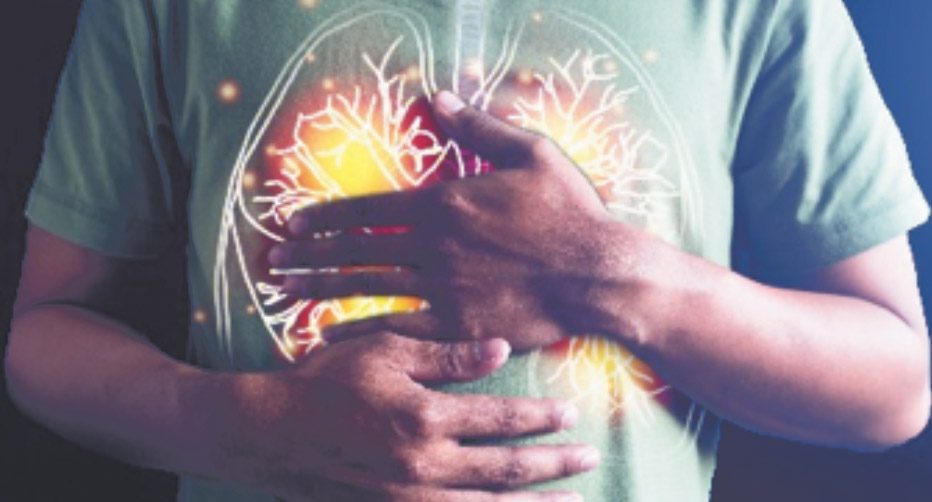Parkinson’s disease is a complex neurodegenerative disorder that affects millions of individuals worldwide.
It is estimated by Parkinson’s Foundation and the Centers for Disease Control and Prevention (CDC) that approximately one million people in the United States are living with Parkinson’s disease. And on average, around 60,000 new cases of Parkinson’s disease are diagnosed in the United States annually.
Characterized by the progressive loss of dopamine-producing neurons in the brain, Parkinson’s disease can lead to a wide range of motor and non-motor symptoms that significantly impact quality of life.
Symptoms and Diagnosis
Parkinson’s disease manifests through a combination of motor and non-motor symptoms.
Motor symptoms include tremor, slowness of movement, muscle rigidity, and postural instability. These symptoms can affect coordination, balance, and mobility, making everyday tasks challenging.
Individuals with Parkinson’s disease may experience a range of non-motor symptoms that impact individuals with Parkinson’s disease. These symptoms include cognition, mood, sleep, and autonomic nervous system function. These can result in slowness of thought processes, depression, anxiety, sleep disturbances, and autonomic dysfunction (such as orthostatic hypotension and constipation).
Diagnosing Parkinson’s disease involves a comprehensive evaluation by a healthcare professional, typically a neurologist or movement disorder specialist. The diagnostic process includes a thorough medical history, physical examination, assessment of symptoms, neurological testing, and, in some cases, imaging studies. While there is no single definitive test for Parkinson’s disease, diagnosis relies on the presence of characteristic symptoms, response to dopaminergic medication, and the exclusion of other conditions that may mimic Parkinson’s disease.
Causes of Parkinson’s Disease
While the exact cause of Parkinson’s disease is not fully understood, several potential factors have been identified: Genetic Factors ( about 10% from total amount of diagnosed individuals and seen more in cultures with inbreeding )which can be activated by the epigenetic factors such as environmental toxins and chemicals, such as pesticides, herbicides, and
heavy metals; oxidative stress; chronic inflammation in the brain and elsewhere in the body; impaired mitochondrial function; abnormal protein aggregates, such as alpha-synuclein, in the brain; gut dysbiosis; excess stress, leading to insomnia, depression and anxiety may speed the progression of the disease.
Allopathic Treatment of Parkinson’s Disease
The main conventional medical treatments focus on managing symptoms and improving quality of life and include medications (Levodopa, Dopamine agonists, MAO-B inhibitors, COMT inhibitors, Anticholinergics, Neuroprotectors); Deep Brain Stimulation (Transracial electromagnetic stimulation, Electrophoresis, Implanted neurostimulators)
Holistic Approaches to Parkinson’s Disease Management
In addition to conventional medical treatments, many individuals with Parkinson’s disease explore holistic approaches to manage their symptoms and improve overall well-being. These holistic modalities focus on finding and addressing underlying imbalances in the body, supporting natural healing processes, and promoting optimal health.
• Nutrition and Dietary Therapy
Avoid Sugar, Alcohol, Caffeine, Highly Processed Foods, aged cheeses and cured meats. Eat balanced diet rich in low glycemic fruits, vegetables, cooked whole grains, lean proteins, and healthy fats that can provide essential nutrients that support brain health and overall well-being.
It is beneficial to take dietary supplements such as Coenzyme Q10, Omega-3 fatty acids, Creatine, Curcumin, Antioxidants and Bioflavonoids, Vitamins B-6, B-12, E and D, Magnesium, N-Acetylcysteine (NAC), Green Tea Extract, Ashwagandha, Ginkgo biloba, Chinese Individualized Herbal Formulas, pro- and pre-biotics and regulatory peptides, which have been studied for their potential neuroprotective effects.
• Holistic Modalities
Oxygen Therapy, like CellGym, Molecular Hydrogen Therapy, SCENAR Therapy, Acupuncture, Bio-Informational Frequency Therapy, Massage Therapy can help alleviate pain and muscle stiffness, reduce inflammation, enhance lymphatic drainage, and promote healing by stimulating the body’s natural self-regulatory mechanisms.
• Exercise and Movement Therapies
Regular exercise is essential for maintaining mobility, flexibility, and strength in individuals with Parkinson’s
heavy metals; oxidative stress; chronic inflammation in the brain and elsewhere in the body; impaired mitochondrial function; abnormal protein aggregates, such as alpha-synuclein, in the brain; gut dysbiosis; excess stress, leading to insomnia, depression and anxiety may speed the progression of the disease.
Allopathic Treatment of Parkinson’s Disease
The main conventional medical treatments focus on managing symptoms and improving quality of life and include medications (Levodopa, Dopamine agonists, MAO-B inhibitors, COMT inhibitors, Anticholinergics, Neuroprotectors); Deep Brain Stimulation (Transracial electromagnetic stimulation, Electrophoresis, Implanted neurostimulators)
Holistic Approaches to Parkinson’s Disease Management
In addition to conventional medical treatments, many individuals with Parkinson’s disease explore holistic approaches to manage their symptoms and improve overall well-being. These holistic modalities focus on finding and addressing underlying imbalances in the body, supporting natural healing processes, and promoting optimal health.
• Nutrition and Dietary Therapy
Avoid Sugar, Alcohol, Caffeine, Highly Processed Foods, aged cheeses and cured meats. Eat balanced diet rich in low glycemic fruits, vegetables, cooked whole grains, lean proteins, and healthy fats that can provide essential nutrients that support brain health and overall well-being.
It is beneficial to take dietary supplements such as Coenzyme Q10, Omega-3 fatty acids, Creatine, Curcumin, Antioxidants and Bioflavonoids, Vitamins B-6, B-12, E and D, Magnesium, N-Acetylcysteine (NAC), Green Tea Extract, Ashwagandha, Ginkgo biloba, Chinese Individualized Herbal Formulas, pro- and pre-biotics and regulatory peptides, which have been studied for their potential neuroprotective effects.
• Holistic Modalities
Oxygen Therapy, like CellGym, Molecular Hydrogen Therapy, SCENAR Therapy, Acupuncture, Bio-Informational Frequency Therapy, Massage Therapy can help alleviate pain and muscle stiffness, reduce inflammation, enhance lymphatic drainage, and promote healing by stimulating the body’s natural self-regulatory mechanisms.
• Exercise and Movement Therapies
Regular exercise is essential for maintaining mobility, flexibility, and strength in individuals with Parkinson’s disease. Activities such as tai chi, yoga, qigong, and dance therapy can improve balance, coordination, and motor function while also promoting relaxation and stress reduction.
• Reduce Stress and Anxiety, Improve Sleep
Aromatherapy through Inhalation or nebulizing of following essential oils are beneficial for combating the fatigue and cognitive challenges, help reduce anxiety and promote relaxation: Lavender, Peppermint, Lemon, Bergamot, Frankincense.
Increasing dopamine levels naturally can help improve mood, motivation, and overall well-being. Sunlight exposure helps regulate dopamine levels by influencing the production of serotonin, a neurotransmitter precursor to dopamine. Aim to spend time outdoors in natural sunlight each day to support healthy dopamine levels.
Your Diagnosis isn’t a Dead End. You are not a list of symptoms and our holistic, individualized approach allows us to identify and treat the true cause that’s been eluding you for years so you can finally feel good again.








